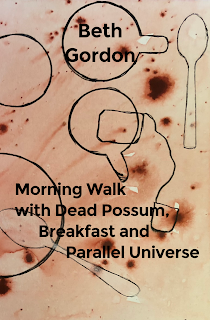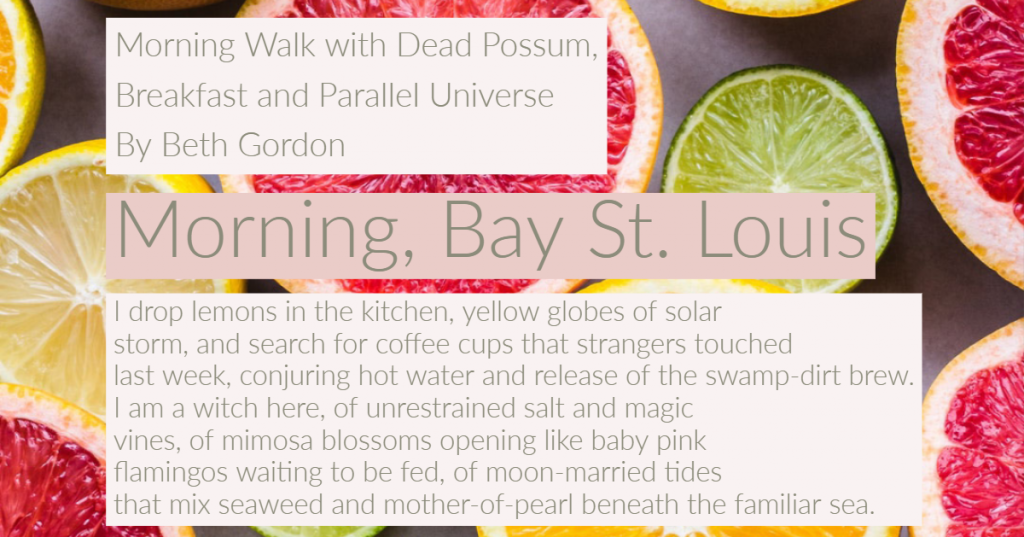
US poet Beth Gordon returned to writing poetry after a significant hiatus in order to process a number of tragic events in her family. In her poetry collection, Morning Walk with Dead Possum, Breakfast and Parallel Universe, she explores grief, loss, mortality, and how we can find moments of beauty through the darkness. Along the way, this poetic journey also follows trails into music, magic, and the ethereal.
Isabelle Kenyon, Managing Director of Fly on the Wall Press, Freelance Editor and Book Marketing Consultant, caught up with Beth Gordon.
Isabelle: When you write a poem, do images or words come first?
Beth: I would say most of the time words come first. Poems are like puzzles to me – I read an article or see a headline and I take that idea, or several ideas and talk about it with my friend. When I do write, visual imagery emerges from that conversation.
Isabelle: How does your environment and your upbringing inform your poetry?
Beth: I was fortunate that my parents thought it was very important we were exposed to books and music. One of my earliest memories was reading Mother Goose; memorising. From the first moment I picked up a pen, I wrote poems. My parents aren’t creative and my mum thinks my commas are in the wrong places! They support me and a big moment was to send them my book. My current environment is a local writers group I go to every Saturday and my network of family and friends – I have now connected the two. I have said, this is how I will be spending my time now. Mostly, they have supported this life change. People have had negative experiences of poetry from school.
Isabelle: If you had to describe your collection in one sentence, what would it be?
Beth: A book of poetry about my relationship with death and life.

Isabelle: Which writers do you admire and does their work influence yours?
Beth: My earliest influences as a female writer would be Sylvia Plath and Mary Oliver. Oliver over time became more minimalist and I aspire to this. Sexton and Plath broke down barriers about “appropriate topics” – sex, periods. At the time, that was not what was expected, and I’m grateful to them for that. The current generation of young writers I find so inspiring- it’s easy to hear people my age criticising the millennials but I believe it is called change and revolution. The strong stance they take on inclusivity, even if it is just on social media, is fantastic. The abundance of literary journals is wonderful. I don’t think I could be writing what I am without them. When I got my MFA, doors were closed, and they have kicked them down.

Isabelle: What is the worst writing advice you have ever received and the best?
Beth: The worst advice I have ever had was when I was an undergraduate in psychology and an English professor started a writing workshop, so I picked up a minor in English just to take the classes. I went to see an old teacher to say I was going to take an MFA after (he had always been very supportive) but he said it would be useless and I wouldn’t learn anything. Thankfully, I ignored him.
The best advice I have ever had was from Henry Taylor, a Pulitzer prize-winner. He said, “the power of your poem cannot be derived from the subject matter alone”. I wrote him a letter after that and sent him some poems. He said I needed to write through my grief and that after that, I would produce new work. In other words, simply writing about the death of a grandchild doesn’t necessarily mean I have refined my craft. Pushing my craft is important to me – to grow and evolve.
